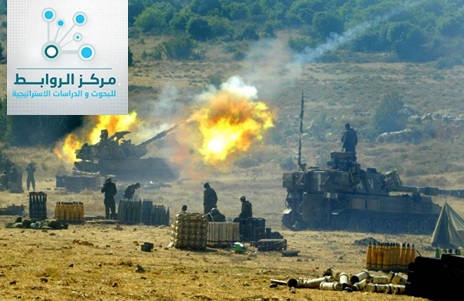Dr. Salim m Al-Zanoun
In the past month, statements of Israeli political and security level have increased about the outbreak of war on the northern front on the grounds that the next war will witness a united front in the north between Lebanon and Syria, a clear indication that the Lebanese army has become part of Hezbollah and that any attack from Hezbollah is an attack From Lebanon.
On Monday, Defense Minister Lieberman accused Hezbollah of firing rockets at the Golan Heights on orders from Hassan Nasrallah and without informing the Assad regime. He said the Syrian regime was responsible for the shooting. Sources in the office of the Israeli prime minister , in coordination with the army denied What Lieberman said and that he expresses his personal appreciation, “This contradiction of the statements imposes two possibilities:
The first possibility: either Lieberman, despite his position and extensive knowledge of the course of events, and security details, but he is far from reality and fabricates the facts, and this is a very low probability.
The second possibility is that Lieberman, by virtue of his position and his position, has declared what is not permissible, and that Hezbollah is responsible for launching the rockets requires an Israeli response. Otherwise, Israel’s deterrent capability has been damaged. In this context, the denial of the army and the government comes and confirms that the fall of missiles were a mistake that makes choices are available to respond or not to respond.
However, the events of the past week indicate that Iran, Syria and Hezbollah are working to draw new red lines for Israel in the Syrian and Lebanese arena, the most important of which are : Syria’s firing on Israeli planes and the statements made by the Iranian chief of staff a few days ago indicating the possibility of responding to Israeli violations and recently the launching of rockets on the Golan, which came early in which there were no clashes in Syria means that the chances of error is very weak, according to this perspective , Israel is facing a new phase on the northern front, centered on the insistence of Iran and its allies to restrict their freedom of movement in the Syrian and Lebanese atmospheres, and this stage may push towards a two scenarios:
The first scenario: the deterioration of things up to the situation of direct engagement in the sense of war, and this scenario is unlikely at the present time, as this war will be gradually expanded to enter the regional and international forces, and these forces are not currently involved in the entry of a regional war.
The second scenario: Israel adjusts its movements in the Lebanese and Syrian arena and adopts the concept of “soft war” based on diplomacy, communication with the active parties, information warfare and cyberspace. This scenario is more likely.
Rawabet Center for Research and Strategic Studies

